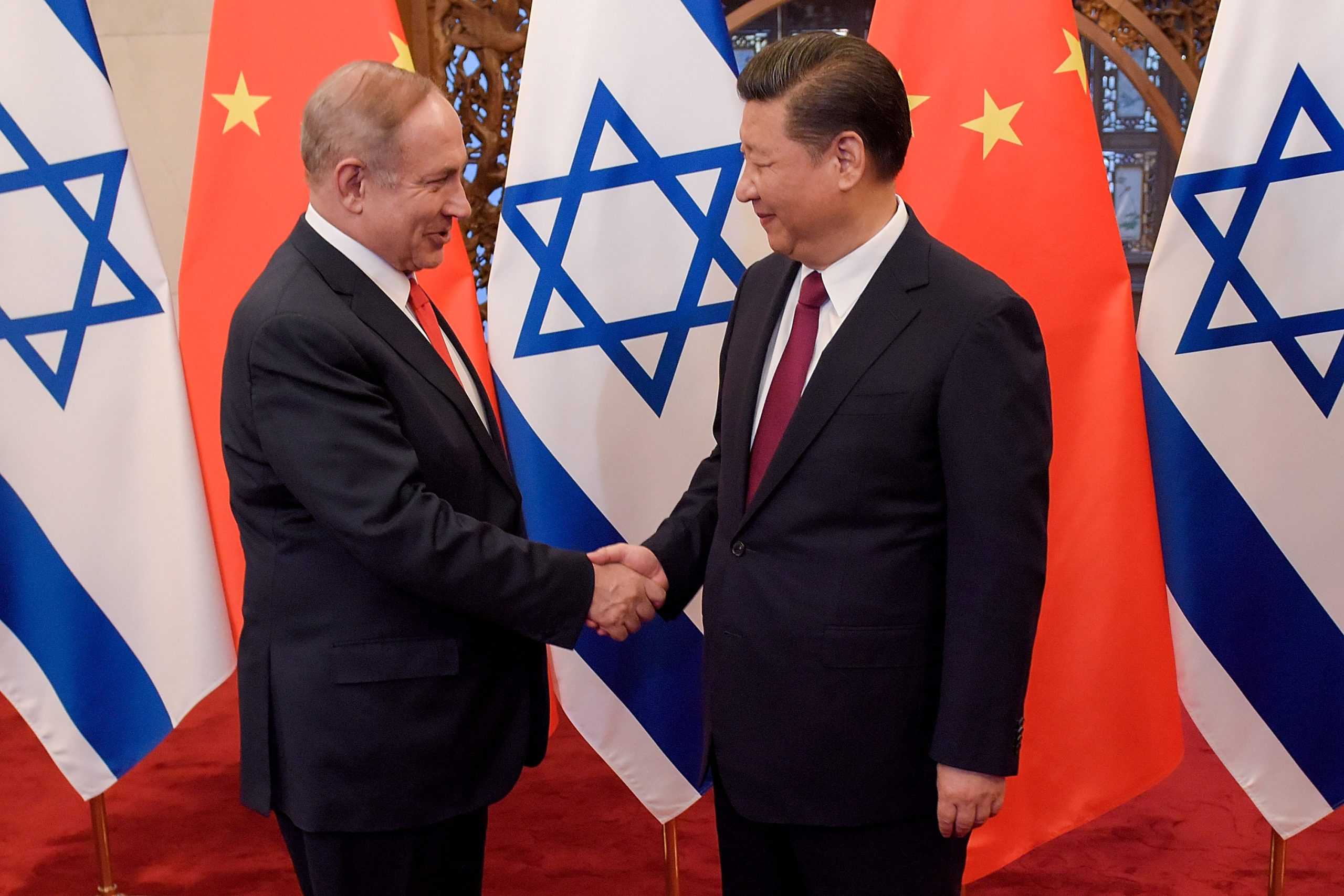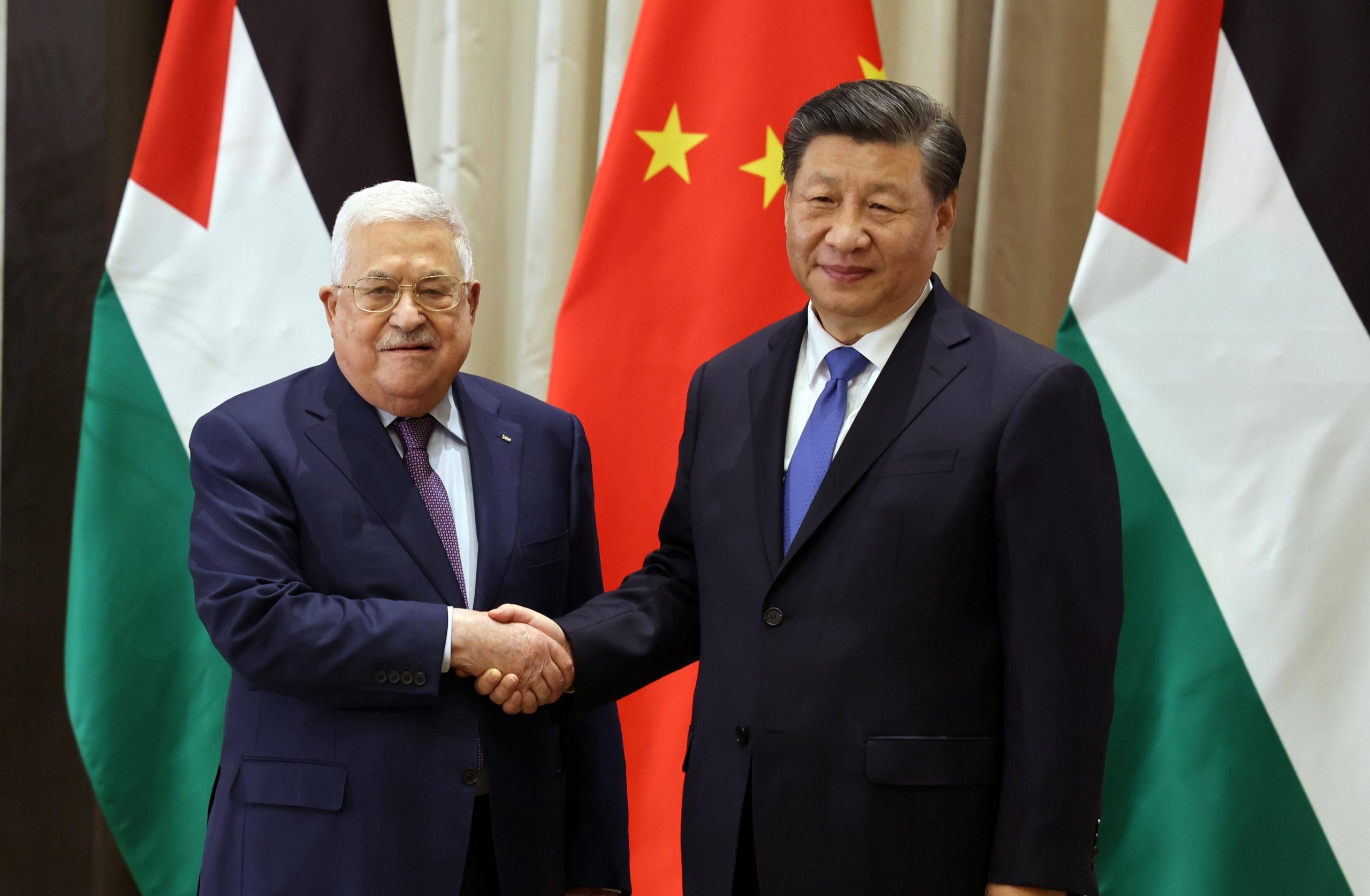Publications
INSS Insight No. 1690, March 6, 2023
In the last few confrontations between Israel and the Palestinians, China continued to display unqualified support for the Palestinian side. For example, after Minister of National Security Itamar Ben-Gvir visited the Temple Mount in early January 2023, China joined the United Arab Emirates in demanding that an urgent discussion be held at the UN Security Council, at which China's ambassador stated, "Israel, in particular, should stop all acts of incitement and provocations." Similar statements were made by China's new Minister of Foreign Affairs, Qin Gang, when he visited Cairo (January 16). At the end of January, China cooperated with the United Arab Emirates and France and requested an urgent meeting of the UN Security Council following the IDF activity in Jenin. Nor did the characteristics of the Chinese response change after recent terrorist attacks in Jerusalem, and included expressions of sorrow at the civilian casualties "in the Israeli-Palestinian conflict;" condemnation of acts of terrorism and at the same time the use of excessive force in response; and calls to “all parties, Israel in particular, to show calm and restraint in order to prevent the situation from spiraling out of control.” A Foreign Ministry spokesperson repeated China's claim that the Israeli-Palestinian conflict has continued because "the legitimate aspirations" of the Palestinians for an independent state have not yet been realized. Similarly, in late December 2022, China voted in favor of the resolution at the UN General Assembly calling on the International Court of Justice in The Hague to provide an advisory opinion on the legal consequences of the Israeli occupation in the Palestinian territories.
This vote is only the latest in a series of votes supporting the Palestinian side since the People's Republic of China replaced Taiwan at the UN in 1971. In effect, however, the PRC's support for the Palestinians began during the period of Mao Zedong, when it expressed support for the Palestinians as part of its support for national liberation groups, against "Western imperialism." In 1965, Mao said to Ahmad al-Shukeiri, the Chairman of the PLO, that "imperialism is afraid of China and of the Arabs. Israel and Formosa (Taiwan) are bases of imperialism in Asia…The West doesn't like us, and we must understand this fact. The Arab battle against the West is the battle against Israel." Even though China's attitude toward the West has changed dramatically since Mao's time, belligerent rhetoric from Chinese leaders in support of the Palestinians continues. For example, in his most recent meeting with Mahmoud Abbas (December 2022), President Xi Jinping said that his country "always firmly supports the just cause of the Palestinian people to restore the legitimate rights and interests of their nation." China is also careful to emphasize at every opportunity that it supports the two-state solution, including a return to the 1967 lines, with East Jerusalem as the capital of the Palestinian state. Furthermore, for many years China has raised similar proposals for ending the conflict – in 1989, in 2004, in 2007, and again in May 2013, when President Xi hosted Israeli Prime Minister Netanyahu and President Abbas in the same week in Beijing. Two months later, China's President updated the plan, which upholds Security Council resolution 2334 from December 2016, and calls for the establishment of a Palestinian state alongside Israel, with the 1967 borders and East Jerusalem as its capital. The Chinese President's addition included a willingness to host an international conference with the participation of the Security Council’s five permanent members and emphasized the economic dimension, while drawing attention toward the Belt and Road Initiative that he announced four years earlier.
In contrast with the declarative political support, China's economic aid to the Palestinians is scanty. The humanitarian aid via UNRWA is likewise limited, certainly compared to the aid from other countries. For example, in 2020 the Chinese aid amounted to $3.3 million, and in 2021 only $2 million. Chinese companies invest very little in the Palestinian territories and have funded small facilities for desalination and solar energy in Gaza. This is in contrast with the involvement of Chinese companies in infrastructure projects in neighboring countries such as Egypt and Israel. Apparently, in Beijing's view, its minimal economic investment satisfies the political need and enables China's ambassadors to the UN and to the Palestinian Authority to express unqualified support for the Palestinian political line in order to strengthen its image as a peace-loving country and a defender of international law. Beijing contrasts this with the United States and its policy, which in its view foments instability, competition, and rivalry in the international arena. China's fixed position on the issue of the Israeli-Palestinian conflict also rests on the need to ensure the support of the Arab-Muslim bloc for its position on Taiwan, and its silence on the Uyghur minority.\
China's policy toward Israel is the inverse of its policy toward the Palestinians. In 2013 Israel and China signed an infrastructure cooperation agreement, and since then Chinese companies have operated in Israel in a wide variety of fields. In addition to their direct economic interest in Israel, Chinese companies use Israel as a "bridge to the West." From a business perspective, for Chinese companies, such as SIPG, which operates the port in Haifa, Israel is a perfect place to practice business activity outside of China. On the one hand, Israel is a developed and democratic country but on the other hand it is small in size. Practice in the Israeli market enables Chinese companies to acquire knowledge and experience for the purpose of future activity in countries in the European market. Similarly, for Chinese diplomats Israel serves as a conduit for conveying messages to the United States, and in the opposite direction – to better understand the American positions.
In 2017, Israel and China signed a Comprehensive Innovative Partnership, which received the blessings of Prime Minister Netanyahu and Chinese President Xi Jinping, and it seems that the two countries enjoy extensive bilateral economic activity, especially in infrastructure, and collaboration in academic institutions. But despite the image created by the Comprehensive Innovation Partnership between Israel and China, the fruits of the "partnership" are not plentiful. At their peak, Chinese investments in Israeli hi-tech reached only about 8 percent of all foreign investments in Israel, and since 2019 even this low rate has declined. The Israeli services industry, which constituted about half of all Israeli exports in 2021, exported less than half a percent to China. At the end of 2022 China made an interesting move, when at three different summits with Arab and Gulf countries it adopted formulations expressing support for the position of the Gulf countries in their conflict with Iran, and thus it signaled its desire to expand its economic cooperation with the region, which is important to it as its main source of energy. China is certainly aware of the Abraham Accords, under whose auspices Israel and the Gulf countries have increased their economic cooperation. This is a convenient backdrop for China and Israel to increase their cooperation, with Gulf involvement.

Yet the two countries have "agreed to disagree" on a series of political issues. China separated these issues from its economic activity in Israel, which for its part the political activity against it and concentrated on exploiting the economic opportunity only. But in the past two years a change has occurred: China has intensified its statements on the Israeli-Palestinian issue, and it seems that Israel has changed its policy, which had included ignoring China's problematic pattern of votes against it at the UN, and has joined criticism in the international arena of China's treatment of the Uyghur minority. In addition, Israel has started to implement monitoring mechanisms on foreign economic activity, as do several countries with a free economy.
Even though Israel has adjusted its expectations from China in the political sphere, China is one of the biggest economies in the world and Israel does not have an interest in disconnecting from it. The great power competition between the United States and China has heightened the Israeli dilemma due to the pressure that Washington places on its allies to reduce their relations with China when it comes to innovative technology. But even in this new reality, in which the importance of the United States' strategic support has increasing weight in Israel's political and security considerations, and China has an economic and political interest in expanding its relations with the Gulf countries, there is much room for expanded cooperation between Israel and China. Not all areas of innovation are related to the competition between the United States and its allies and China. The US administration itself makes an effort to clarify that it seeks China's cooperation in areas that affect the future of humanity, such as climate change, air pollution, food security, global sanitation, and more. These are areas in which China and Israel both have research and development and production capabilities. China-Israel relations came up during the recent visits to Israel by the US Secretary of State, director of the CIA, and the National Security Advisor, and the new government in Israel has been asked to discuss various aspects of this issue. China entails economic potential for every developed and innovation-based economy, such as the Israeli economy. Thus Jerusalem and Beijing have an interest in developing the economic relations between them, while attempting to create updated rules of the game suitable for the era of competition between the great powers. Israel should work to form economic collaborations that do not damage Israel-United States relations, and at the same time, continue to maintain freedom of political expression, which responds matter-of-factly to China's political actions against Israel.



